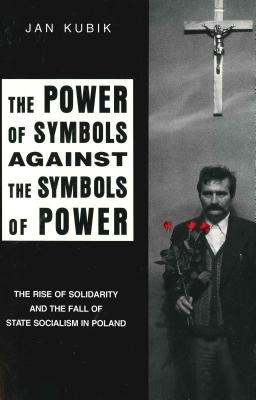
- We will send in 10–14 business days.
- Author: Jan Kubik
- Publisher: Penn State University Press
- ISBN-10: 0271010843
- ISBN-13: 9780271010847
- Format: 15.3 x 22.9 x 2.4 cm, minkšti viršeliai
- Language: English
- SAVE -10% with code: EXTRA
Reviews
Description
The authority of Polish communists in 1944-1945 was usurpatory; it was not given to them by the Polish people. Nor was the power they held the result of their own actions; they were installed as the country's rulers by the Soviet army. Yet Polish Communists set out to produce credible claims to authority and legitimacy for their power by reshaping the nation's culture and traditions.
Jan Kubik begins his study by demonstrating how the strategy for remodeling the national culture was implemented through extensive use of public ceremonies and displays of symbols by the Gierek regime (1970-1980). He then reconstructs the emergence of the Catholic Church and the organized opposition as viable counter-hegemonic subcultures. Their growing strength opened the way for counter-hegemonic politics, the delegitimization of the regime, the rise of Solidarity, and the collapse of communism.
He is not studying politics per se, but rather culture and the subtle and indirect ways power is realized within it, often outside of traditionally defined politics. Kubik's approach, which draws heavily on modern anthropological theory, helps explain why Solidarity happened in Poland and not elsewhere in the Communist bloc.
EXTRA 10 % discount with code: EXTRA
The promotion ends in 22d.10:30:06
The discount code is valid when purchasing from 10 €. Discounts do not stack.
- Author: Jan Kubik
- Publisher: Penn State University Press
- ISBN-10: 0271010843
- ISBN-13: 9780271010847
- Format: 15.3 x 22.9 x 2.4 cm, minkšti viršeliai
- Language: English English
The authority of Polish communists in 1944-1945 was usurpatory; it was not given to them by the Polish people. Nor was the power they held the result of their own actions; they were installed as the country's rulers by the Soviet army. Yet Polish Communists set out to produce credible claims to authority and legitimacy for their power by reshaping the nation's culture and traditions.
Jan Kubik begins his study by demonstrating how the strategy for remodeling the national culture was implemented through extensive use of public ceremonies and displays of symbols by the Gierek regime (1970-1980). He then reconstructs the emergence of the Catholic Church and the organized opposition as viable counter-hegemonic subcultures. Their growing strength opened the way for counter-hegemonic politics, the delegitimization of the regime, the rise of Solidarity, and the collapse of communism.
He is not studying politics per se, but rather culture and the subtle and indirect ways power is realized within it, often outside of traditionally defined politics. Kubik's approach, which draws heavily on modern anthropological theory, helps explain why Solidarity happened in Poland and not elsewhere in the Communist bloc.


Reviews